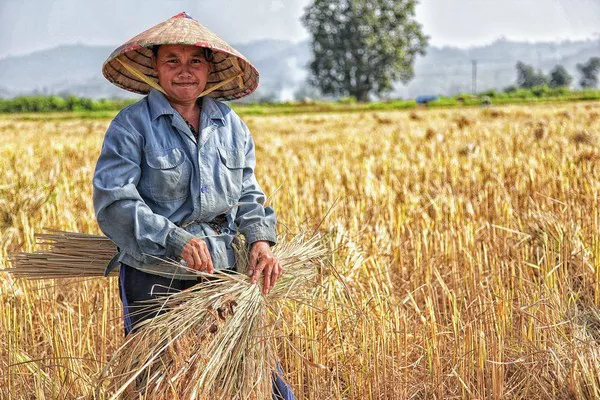Agriculture Secretary Tom Vilsack unveiled a significant investment of $2.3 billion by the U.S. Department of Agriculture (USDA) aimed at supporting American producers in maintaining and expanding their markets while also contributing to international food aid efforts.
This financial commitment, in response to a bipartisan request from the Senate Committee on Agriculture, Nutrition, and Forestry, draws from the Commodity Credit Corporation (CCC) and addresses challenges linked to trade dynamics and food insecurity, impacting U.S. farmers and the global community. The allocation of these funds will take two main forms:
Regional Agricultural Promotion Program (RAPP) and Specialty Crop Support ($1.3 billion): This substantial investment is designed to promote diversification of export markets, targeting the $19 billion FY23 agricultural trade deficit. By fostering growth in both new and existing markets, this program is aimed at ensuring the United States remains competitive in the face of rising competition in Asian and African export markets. Analysis suggests that for every $1 invested in export market development, exports increase by $24.50, directly benefiting producers. This initiative is also anticipated to stimulate access to non-traditional markets, thereby reducing reliance on a limited number of large markets.
International Food Aid ($1 billion): The challenges posed by disrupted supply chains and ongoing conflicts have exacerbated global food insecurity, necessitating a significant response. An estimated 205 million individuals require life-saving food assistance, while 768 million are grappling with chronic hunger, as reported by the Global Report on Food Crises and the Food and Agriculture Organization (FAO). With the U.S. being a net producer of commodities, the country is well-positioned to address these crises. USDA will purchase commodities and collaborate with the United States Agency for International Development (USAID) to ensure the delivery of these vital resources to those in need. This $1 billion contribution will play a pivotal role in ongoing efforts to combat global hunger and support U.S. agriculture by purchasing surplus commodities.
Agriculture Secretary Vilsack emphasized the importance of these investments in the current context. “The Commodity Credit Corporation continues to address the needs of American producers as significant and unpredictable challenges arise, including impacts to international commodities markets and global food insecurity in the wake of ongoing conflict and a changing climate,” he stated. The Secretary made this announcement as part of the World Food Prize’s Borlaug Dialogue, an annual event held in Des Moines, Iowa, bringing together global leaders and experts to address pressing food security issues. This initiative follows the CCC’s recent 90th anniversary and its enduring role in stabilizing markets, supporting farm income, and enhancing the marketability of agricultural commodities.
The RAPP program is envisioned to revitalize efforts to foster international market development, particularly as the Agricultural Trade Promotion Program (ATP) approaches its expiration. The ATP, created in response to the U.S.-China trade war five years ago, has enabled exporters to diversify their markets. However, as ATP funds diminish, many exporters have scaled back their activities. The RAPP will strive to ensure the continuity of relationships and trust essential for sustained market development.
Regarding international food aid, the pressing need for relief is exacerbated by ongoing conflicts, droughts, and various challenges. The USDA’s contribution, in collaboration with USAID, seeks to fill critical resource gaps and address global hunger effectively.
These initiatives reflect the USDA’s pivotal role in the lives of Americans and its commitment to building a more resilient food system, ensuring equitable markets, promoting access to safe and nutritious food, supporting climate-smart agricultural practices, investing in rural infrastructure and clean energy, and fostering equity throughout the department.

